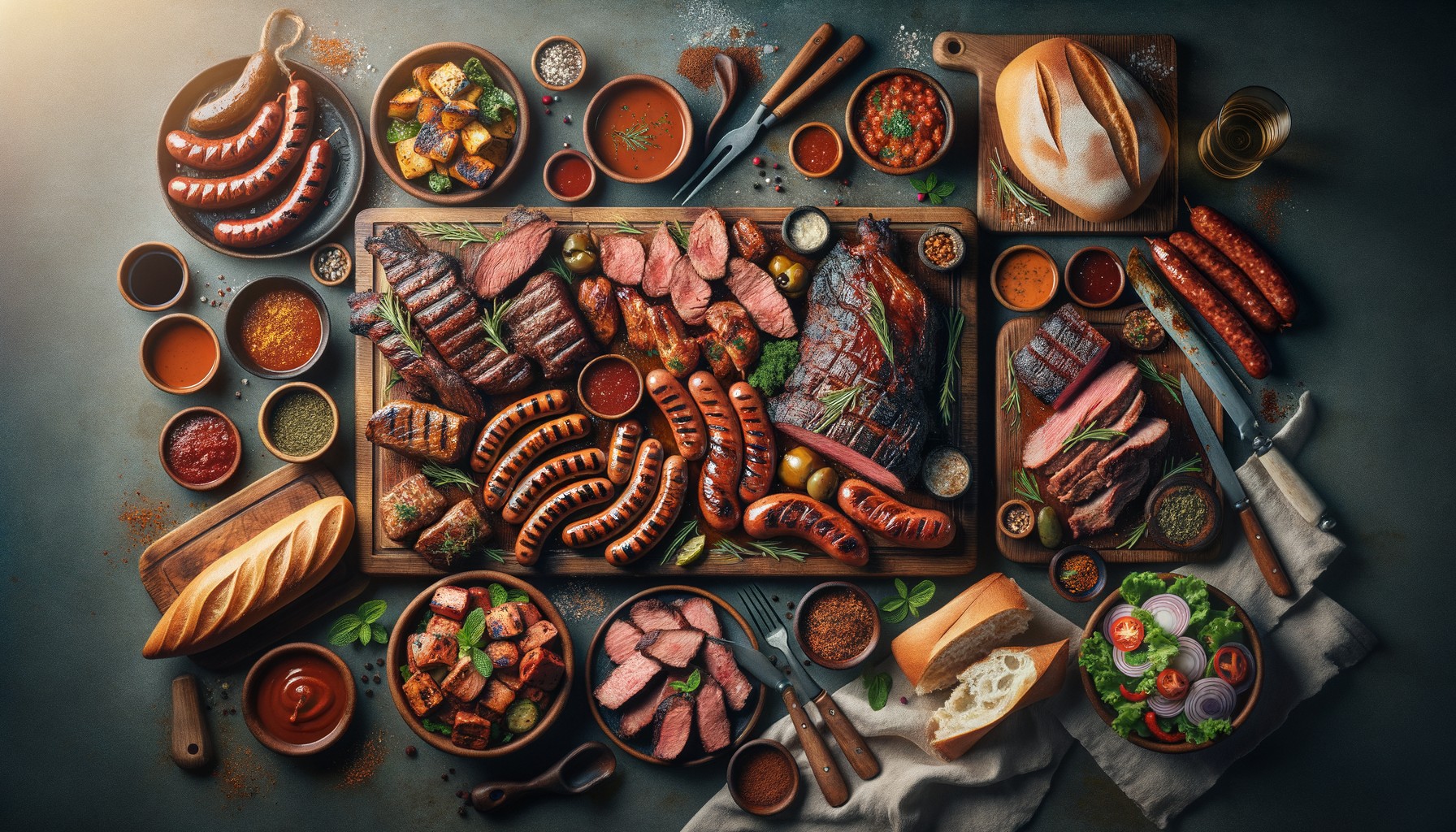Introduction: The Universal Allure of Asado
The aroma of sizzling meat, the crackling of wood, and the warm company of friends and family—a scene familiar across continents but perfected in the heart of Argentina. Asado, Argentina's quintessential grilling tradition, is more than a culinary art; it’s a cultural event. For European BBQ enthusiasts looking to refine their skills and host authentic asado nights, understanding its history, techniques, and cultural significance is key.
The Historical Roots of Argentinian Asado
Originating from the gauchos of the Pampas, Argentinian asado has a rich history intertwined with the nation's identity. These nomadic horsemen relied on open-fire grilling as a practical cooking method, which evolved into a cherished tradition. Today, asado represents a communal celebration, much like Europe’s Midsummer feasts or Oktoberfest gatherings.
Cultural Significance in Argentina
Asado is a social ritual in Argentina, where families and friends gather to savor not just food but camaraderie. It often serves as the centerpiece of weekend gatherings and festive occasions, echoing the communal spirit seen in European Christmas markets.
Essential Asado Techniques: From Fire to Fork
Building the Perfect Fire
Central to an authentic asado is mastering the fire. Unlike European BBQs that might rely on gas grills, traditional asado uses wood or charcoal. The choice of wood is crucial; quebracho or mesquite is preferred for its slow-burning properties and aromatic smoke.
- Temperature Control: Aim for a steady heat between 250-300°F (120-150°C) for slow cooking.
- Fire Placement: Arrange coals or wood to create a 'parrilla' effect, ensuring even heat distribution.
Preparing the Meat
Argentinian asado is renowned for its selection of meats, particularly beef cuts like ribeye, flank, and short ribs. The key is simplicity; meats are often seasoned with only coarse salt before grilling.
- Optimal Thickness: Cuts should ideally be 1 to 1.5 inches thick for even cooking.
- Seasoning Tip: Use a generous amount of salt to form a crust that locks in juices.
Grilling Techniques
Asado grilling is a patient art. Meat is cooked slowly, absorbing flavors from the wood smoke, akin to the slow-roasting methods in some European cuisines.
- Cooking Time: Allow 1-2 hours depending on the cut and desired doneness.
- Visual Cues: Look for a caramelized surface and a smoky aroma as indicators of readiness.
The Science of Asado: Why It Works
Understanding the science behind asado can elevate your grilling. The Maillard reaction, a chemical process between amino acids and sugars, is responsible for the rich, complex flavors. The slow cooking method allows collagen in tougher cuts to break down, resulting in tender, juicy meat.
Hosting an Authentic Asado Night in Europe
Setting the Scene
Create an atmosphere reminiscent of Argentina with rustic tables, traditional music, and, importantly, a relaxed, communal vibe. Consider integrating it with European celebrations like Easter or summer garden parties for a fusion of cultures.
Pairing Wines and Sides
Argentinian malbec is a classic pairing with asado. For sides, consider chimichurri sauce, grilled vegetables, and salads, complementing the robust flavors of the meat.
Common Mistakes and How to Avoid Them
- Overcrowding the Grill: Leave space between cuts to ensure even cooking.
- Impatience: Rushing the process leads to unevenly cooked meat. Practice patience for the best results.
Recommended Equipment for the Perfect Asado
Investing in the right tools is crucial for an authentic experience:
- Parrilla Grill: A must for traditional asado, offering adjustable grates.
- Grill Thermometer: Ensures precise temperature control.
- Chimney Starter: Efficiently ignites charcoal or wood.
Conclusion: Bringing Asado to Your European BBQ
Mastering Argentinian asado is a journey into a world of rich flavors and cultural depth. By embracing its techniques and traditions, European enthusiasts can transform their BBQ gatherings into unforgettable experiences. Whether during a Midsummer celebration or a cozy winter evening, the art of asado offers a timeless connection between cultures.





